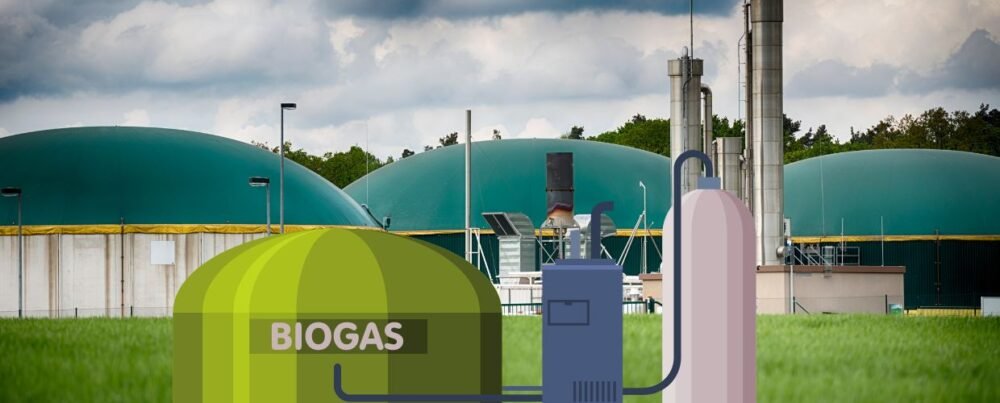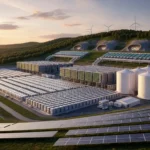In the quest for sustainable energy solutions, biomass conversion has emerged as a versatile and promising pathway to harnessing nature’s power. As the world faces pressing challenges related to climate change, resource scarcity, and waste management, transforming organic materials into valuable energy sources offers hope for a cleaner and more resilient future.
Biomass Conversion
Biomass conversion involves harnessing the energy stored in organic materials such as agricultural residues, wood, and municipal waste. These materials are converted into usable energy forms such as heat, electricity, and biofuels. This approach takes advantage of nature’s abundance while addressing waste disposal challenges.
The allure of biomass conversion lies in its potential to replace fossil fuels with renewable alternatives. By utilizing readily available and often considered waste materials, biomass conversion minimizes environmental impacts. It reduces greenhouse gas emissions, making it a critical player in transitioning to a low-carbon energy landscape.
Biogas and Biofuels
Two prominent products of biomass conversion are biogas and biofuels. Biogas is a versatile energy source produced through the anaerobic digestion of organic materials. It contains methane, a potent greenhouse gas, which, when captured and used as fuel, reduces its release into the atmosphere. Biogas can generate electricity, heat buildings, and even fuel vehicles.
On the other hand, biofuels are derived from biomass and can serve as direct substitutes for fossil fuels. Biodiesel and ethanol are two commonly used biofuels that can be blended with or replace conventional gasoline and diesel. By harnessing the energy stored in plant matter, biofuels offer a cleaner alternative for transportation and reduce the carbon footprint associated with conventional fuels.
Waste-to-Energy Transformation
Biomass conversion aligns with the principles of the circular economy, a system that seeks to minimize waste and maximize resource use. By transforming organic waste into valuable energy sources, biomass conversion mitigates the environmental impacts of landfilling and incineration. It’s a testament to our ability to create a symbiotic relationship between waste management and energy production.
Municipal solid waste, often viewed as a burden, can be transformed into a resource through technologies like anaerobic digestion and pyrolysis. These processes generate energy and reduce the volume of waste in landfills, thereby decreasing methane emissions and the associated environmental risks.
Challenges and Advancements
While the potential of biomass conversion is promising, challenges exist that need to be addressed for its widespread adoption. One key consideration is the environmental impact associated with biomass sourcing. Ensuring sustainable land management and responsible harvesting practices are essential to prevent deforestation and other negative consequences.
Moreover, the energy efficiency of biomass conversion processes needs to be optimized. Depending on the technology and feedstock used, some processes may require significant energy input, which could offset the environmental benefits. Continued research and development are crucial to refining these processes and increasing efficiency.
Technological Innovation
Innovation is propelling the field of biomass conversion forward, making it more efficient and economically viable. Advances in biotechnology and process engineering enable the development of new feedstocks, improved conversion methods, and enhanced energy yields. These innovations are essential in unlocking biomass’s full potential as a renewable energy source.
Our journey toward a sustainable future must be guided by a deep understanding of the interconnectedness of our actions and their impacts. Biomass conversion offers a tangible path forward that transforms waste into energy, reduces emissions, and aligns with the principles of responsible resource management.
Biomass in the Global Energy Mix
Countries around the world recognize the value of biomass conversion in their energy strategies. In Sweden, for instance, biomass-powered district heating systems provide a significant portion of the country’s heat demand. Sugarcane-based ethanol has become a successful example of how biofuels can replace conventional gasoline in Brazil.
Furthermore, small-scale biomass conversion projects are gaining traction, especially in rural and remote areas with limited access to conventional energy sources. These decentralized solutions contribute to energy access and community development while utilizing locally available resources.
By embracing biomass conversion, we tap into ecosystems’ inherent resilience and contribute to a cleaner and more efficient energy landscape. As technology evolves and innovations emerge, the dream of a circular economy powered by organic waste is becoming a reality.
Conclusion
As we stand at a crossroads in our relationship with the planet, the potential of biomass conversion to drive sustainable energy solutions is more critical than ever. It’s a reminder that nature’s bounty holds the keys to our energy challenges if we are willing to unlock them responsibly.
In the end, biomass conversion is a testament to our ability to learn from nature’s processes and mimic its regenerative capacity. It’s a call to action to cultivate a more sustainable future—one in which our energy needs are met by the transformative power of organic materials, leaving a legacy of cleaner air, healthier ecosystems, and more harmonious coexistence with our planet.





